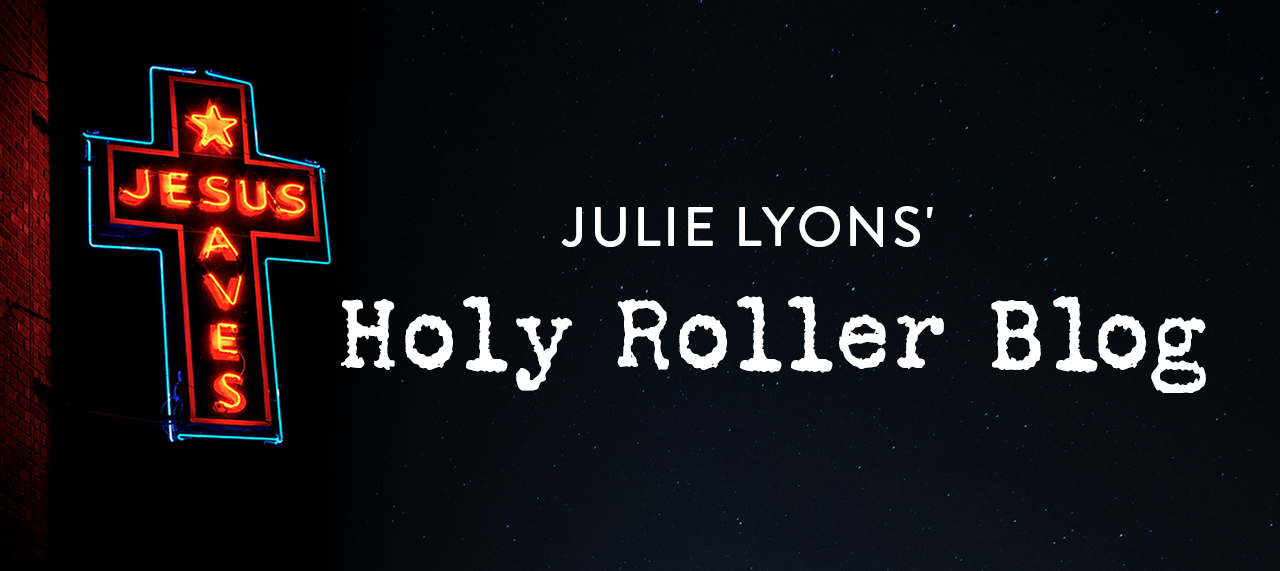A pastor friend of mine in Africa sent me yet another Trump prophecy video and asked what I thought. These videos really get around! This particular prophet promised a flood, fire, and lots of other bad stuff if we don’t re-elect Donald Trump as president today. Add this to the asteroid Pat Robertson prophesied even if we do re-elect Trump. Hey, why not just give up now?
Surveying all of the Trump prophecy videos and articles I’ve read in the past four years, I ended up with one burning question: Where are the Black prophets? How come they’re not getting all these Trump prophecies? Does God no longer speak to Black people?
I know, I know. Someone’s gonna find some weird prophet dude who looks like Little Richard and send him my way, saying, “See? Here’s a Black guy who has a prophecy about Trump.”
What I mean is someone who’s respected in the Church, who walks the talk, and has some semblance of a national platform. Oh yeah—only white prophets get national Christian media exposure. I forgot.
Seriously, though, please understand that I respect prophets and prophecy. I don’t think prophecy passed away just because a couple of early 20th century theologians decided it did, and I don’t think it’s the same as preaching, and yes, I have seen it exercised many times in ways that edify the Church. Caveat: I have not seen every Trump prophecy, and I’m not dismissing all of them.
It’s just that I’ve happened to notice this ginormous blind spot among my white brothers and sisters in Christ, and it’s called racism. It’s been around a long time, like, 400 years or so in this beautiful country, and it continues to cause immense suffering. If you disagree with that statement, I guess it’s because you’re one of the folks who shows up in those studies that say white people don’t think racism is such a big problem anymore—while Black people in the same study say it is.
See, there’s this disconnect in how white and Black Americans view racism. You can see it in the white evangelicals who are willing to swallow a heaping helping of racism along with their vote for Trump. It’s hard to reach that position without thinking racism really isn’t as bad as Black people say it is.
As if white people would know.
Tell that to the Black parents I know who are forced to teach their young men exactly what to do and say if a police officer pulls them over for whatever trivial thing, so they don’t get shot.
Tell that to the African-American friend who shops at the same Target I do, is a professional like me, and gets followed by security around the store—something that has never happened to me. Ever.
Tell that to my Black Christian friends who attend diverse but predominantly white churches and regularly have to shrug off insulting comments from their fellow churchgoers. Through these trials they’ve become exemplars of humility and grace, and for this their reward is to be taken for granted by their incurious and comfortably ignorant white Christian friends.
I have a theory: Maybe, just maybe, some of these prophecies declaring that Trump is Christianity’s only hope reflect that ginormous blind spot called racism.
I’m not calling the prophets racists. But if you’re viewing America through a grid that says racism isn’t much of a problem here, I can see how you’d think abortion is the biggest issue of our time, and Donald Trump is The Guy.
And maybe, just maybe, the problem is your grid.
There’s this curious passage about prophecy in Ezekiel 14 that I’ve never heard preached. Here is my summary: If you set up an idol in your heart and then go seeking a prophetic word, you will hear exactly what you want to hear.
So if you think Donald Trump is the only person who can save America, I’d say that there just might be an idol in your heart. And maybe that idol is causing you not to hear the cries of your Black and brown sisters and brothers in Christ.
Do you hear their cries? If so, what have you done about it?
Timothy Dalrymple wrote an outstanding editorial in Christianity Today titled “Why Evangelicals Disagree on the President.” With compassion for both sides and superb theological and social context, he explains why some people see no choice but to support Trump, and others see no choice but to oppose him—please read it, whichever side you’re on. I’ll end with a quote that resonates deeply with me:
“…I lament that so many people now look at evangelicals and see Trump instead of Christ, and I fear my children will grow up in a society more hostile to their faith as a result. And I am heartbroken that so many on the margins, in particular African American believers, have been wounded by white evangelical support for the president.”
I am heartbroken too. My prayer is that the Church will rebuild from whatever happens in this election, pull the plank out of its eye, and become a place of hope, healing, and encounter with the Risen Christ for all people.






